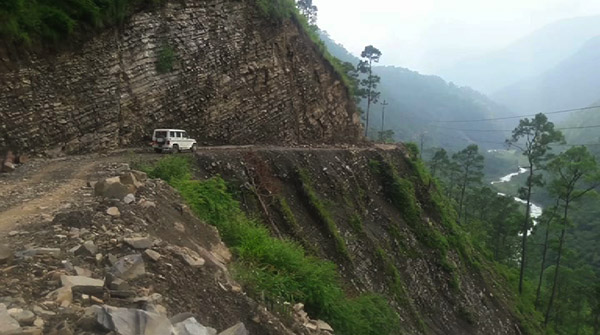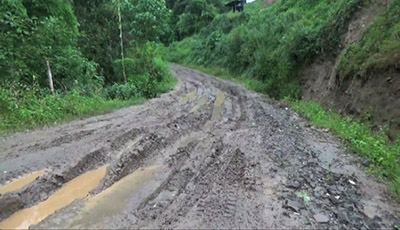 For the rural communities in the country, having their villages connected with a farm road is a boon. But from the environmental perspective, it has an adverse impact. A publication with the Ugyen Wangchuck Institute of Conservation and Environment Research (UWICER) found that poor quality farm roads have resulted in road surface and slope erosion leading to adverse environmental impact.
For the rural communities in the country, having their villages connected with a farm road is a boon. But from the environmental perspective, it has an adverse impact. A publication with the Ugyen Wangchuck Institute of Conservation and Environment Research (UWICER) found that poor quality farm roads have resulted in road surface and slope erosion leading to adverse environmental impact.
A forestry officer, Tashi Norbu with the Department of Forests and Park Services (DoFPS) conducted the study of close to 50 kilometres of farm roads in Dagana. His study found out that the roads constructed were not up to the required standards.
12 kilometres of the farm roads were found to be in bad conditions without proper drainage system resulting in road surface erosion.
One of the key findings of the study is that the construction of farm roads causes landscape scrapping, soil erosions and landslides, wildlife habitat defragmentation and sedimentation of water channels.
The study says several substandard works with farm roads have led to extensive environmental impacts and deforestation due to continuous erosion.
 The study recommends revival and review of farm road constructions in the country.
The study recommends revival and review of farm road constructions in the country.
It also suggests that engineering aspects during the road constructions need to be monitored and to take slope stabilization measures at erosion-prone sites.
Also, the study recommends taking into consideration the quality of the farm roads rather than quantity and that the utility of farm roads be studied before the construction.
Considering the farm roads as the basic infrastructure for rural development, the government spends millions every year on farm roads construction.
As of June this year, 11,200 kilometres of farm roads were constructed.







